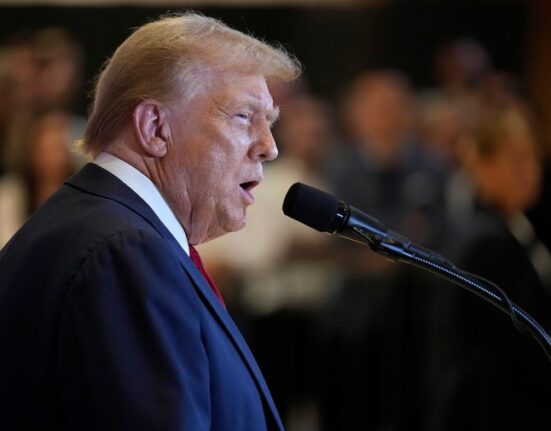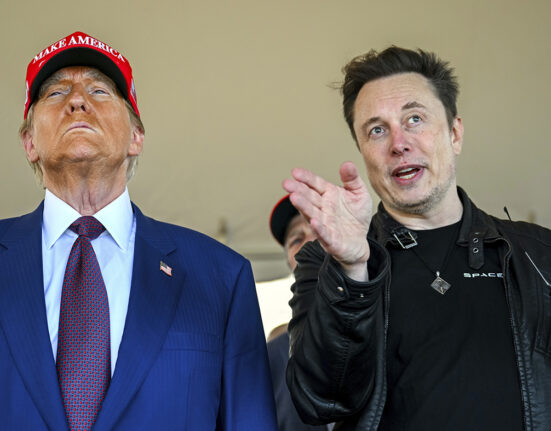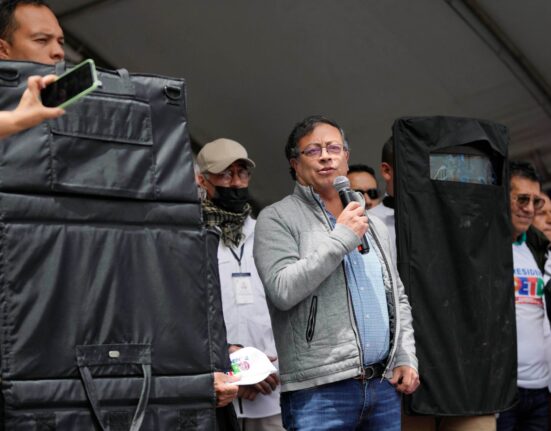Environmentalists are pushing President Biden to veto a bill that would weaken federal scrutiny of semiconductor manufacturing.
But Biden is reportedly set to sign the legislation, which has moved quickly through both the House and Senate and has support from lawmakers in key swing seats.
The bill would exempt semiconductor manufacturing facilities that receive federal funding from environmental reviews.
Opponents warn that it could lead to less oversight of the industry and more pollution.
Harry Manin, the Sierra Club’s deputy legislative director for industrial policy and trade, said that if the legislation becomes law, “it’s going to be completely secret going forward whether facilities are using PFAS and other harmful chemicals.”
“It’s not going to have to be reported,” Manin said. “That really was the last protection that communities and workers had … the promise of transparency — so that then through federal, state and venues with the companies [they] can negotiate for mitigations and in some cases eliminations.”
The bill unanimously passed the Senate late last year with little fanfare. This week it sped through the House, passing the lower chamber 257-125 on Monday despite not being subject to any House committee hearings.
Rep. Zoe Lofgren (Calif.), the top Democrat on the House Science, Space and Technology Committee, told The Hill that not sending the bill through committee represented a “major departure” from typical procedure.
She added that it would be “unwise” to eliminate environmental reviews completely, given historic pollution tied to semiconductor manufacturing.
In floor speeches, other opponents raised similar concerns.
“Semiconductor manufacturing has never been clean. It’s left behind pollution, toxic waste and even poisoned workers,” Rep. Summer Lee (D-Pa.) said Monday. “We’re talking miscarriages, cancer and entire communities still dealing with the fallout today.”
She added that the legislation “intends to throw all those lessons out the window and bring back the same toxic mess we saw in Silicon Valley, only bigger.”
Despite these concerns, a White House official told Politico that Biden would sign the bill into law.
The official said in a statement that the legislation “will allow us to continue our efforts to ensure Americans across the country can benefit from the promise of the Investing in America agenda while protecting communities and the environment.”
White House spokespeople did not respond to requests for comment from The Hill about whether Biden would sign the bill or how he would respond to environmentalist criticisms.
The legislation follows 2022’s CHIPS and Science Act, which put $280 billion into building, expanding and modernizing semiconductor manufacturing.
Semiconductors are used in a wide range of technologies ranging from phones and computers to weapons systems to renewable energy.
However, their manufacturing has historically included carcinogens like arsenic and benzene.
In the present day, a major concern that has been raised is the use of toxic per- and polyfluoroalkyl substances (PFAS), which have become widespread in the environment and human beings and have been linked to cancer and other health issues.
While the legislation saw opposition from mainstream Democrats, it is supported by vulnerable lawmakers including Sen. Sherrod Brown (D-Ohio), who touted its House passage in a written statement.
“This legislation will help prevent delays to the semiconductor manufacturing projects the CHIPS Act made possible and will encourage future investments in American manufacturing,” he said.
The legislation’s House co-sponsors include Reps. Elissa Slotkin (D-Mich.) and Ruben Gallego (D-Ariz.), who are both running for Senate in competitive races.
But the bill’s opponents said Biden shouldn’t sign it.
“I think he should veto it, ” Lofgren told The Hill. “But he’s the president and I’m not.”













